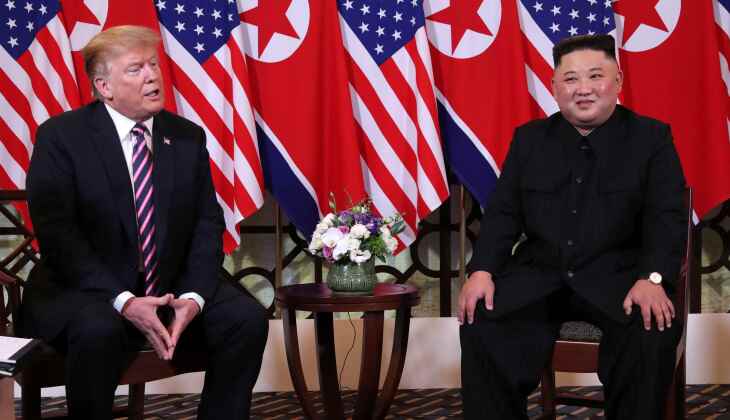News
Russian Envoy Warns American War Exercises Aimed at North Korea Could Press Pyongyang to a Nuclear Response
Amid signs of strengthening ties between Russia and North Korea, and as Moscow’s deteriorating relations with the Western Bloc have led it to increasingly turn to previously neglected Cold War era partners, Russian Permanent Representative to International Organisations in Vienna Mikhail Ulyanov has been among the country’s officials to highlight the threats posed by rising tensions in Korea. Criticising U.S. moves to hold military exercises aimed at North Korea country, and Washington’s blocking of moves at the UN Security Council to relax sanctions in exchange for concessions from Pyongyang, Ulyanov stated: “Simply receiving a nod from the [UN] Security Council could matter to North Korea, while the Americans have rendered sending such a signal impossible. As a result, we are witnessing a complete stagnation, if not degradation, in this sphere. Another nuclear test cannot be ruled out against this background… There is such likelihood. If that happens, the Preparatory Commission for the Comprehensive Nuclear-Test-Ban Treaty Organization would convene an emergency session, and it would either adopt a resolution or issue a condemnation.”

In 2017 the theDonald Trump administration seriously considered mass nuclear strikes on North Korea, before the East Asian state test fired its first ballistic missiles capable of reaching the U.S. mainland which significantly reduced the possibility of an American attack. Although the Trump administration moved to improve ties with Pyongyang in 2018, it was widely criticised in China and Russia for collapsing peace talks in Vietnam in February 2019 by insisting on a near complete capitulation and eschewing offers of mutual step by step concessions. The intervention of President Trump’s National Security Advisor John Bolton was later widely credited with causing the breakdown. Mikhail Ulyanov stated regarding economic sanctions imposed through the UN Security Council, and how he believed America’s unwillingness to compromise had violated them: “The Americans have been actually violating the commitments fixed in UN Security Council resolutions on sanctions. True, sanctions were imposed, and yet at the end of every such resolution, it was noted, primarily at our insistence, that the Security Council would closely monitor the developments and North Korea’s behaviour in order to either lift or suspend or impose new sanctions, depending on how North Korea behaves,” he said. The diplomat highlighted that major conciliatory steps previously taken by Pyongyang, most notably a self-imposed moratorium on nuclear and missile testing, were never acknowledged or rewarded with sanctions relief as a result, providing the East Asian state with little incentive not to resume pressuring the United States with weapons tests. North Korea and the United States have been technically at war for over 70 years, with America’s ability to isolate the Korean economy after the end of the Cold War and subsequently to increase this isolation by passing UN Security Council Sanctions having been a major asset in constraining its potential.












